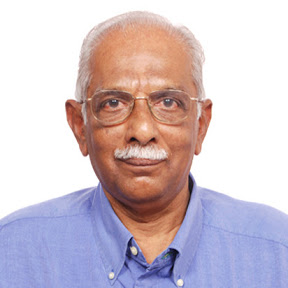Judicial Reform – Perspectives and Prescriptions

 Justice is usually depicted as blind. In fact, it should have its eyes wide open! The people of India gave to themselves a Constitution intended to secure firstly, justice - social, economic and political. Regrettably, Indian justice system, which is denial of justice by delay, is beyond the reach of most people. Indians suffer the twin maladies of denial by delayed justice and access to it. The costs are prohibitive. Those in authority and those with access to justice are insensitive to the needs of those who are denied even minimal justice. Drastic overhaul is called for. The legacy system is to be replaced with an equitable one, where nyaya takes over, as described by Amartya Sen, in his book, “The Idea of Justice”. India needs more of nyaya than niti. Niti, as Sen says, is “organisational propriety and behavioural correctness”. Nyaya is the “Concept of realised justice”. India needs the latter. It is simple to achieve if only people are determined. Justice, that the people’s representatives have administered and provided over several decades of independence, has no semblance to any of the three components of justice the people of India wanted to secure for themselves through the Constitution. Instead, we have, Sen’s description of a form of justice, if it can be called that, ‘justice in the world of fish’ - “Matsyanyaya”, where the big fish devour the small ones. Dealt herein is the topic of administration of the justice system with suggestions for its complete overhaul. This would partly achieve social justice. Much more needs to be done. The struggle for economic and political justice would have to be simultaneous. The police, which are integral to the justice system also, needs drastic change. A few suggestions for reform are given here.
Justice is usually depicted as blind. In fact, it should have its eyes wide open! The people of India gave to themselves a Constitution intended to secure firstly, justice - social, economic and political. Regrettably, Indian justice system, which is denial of justice by delay, is beyond the reach of most people. Indians suffer the twin maladies of denial by delayed justice and access to it. The costs are prohibitive. Those in authority and those with access to justice are insensitive to the needs of those who are denied even minimal justice. Drastic overhaul is called for. The legacy system is to be replaced with an equitable one, where nyaya takes over, as described by Amartya Sen, in his book, “The Idea of Justice”. India needs more of nyaya than niti. Niti, as Sen says, is “organisational propriety and behavioural correctness”. Nyaya is the “Concept of realised justice”. India needs the latter. It is simple to achieve if only people are determined. Justice, that the people’s representatives have administered and provided over several decades of independence, has no semblance to any of the three components of justice the people of India wanted to secure for themselves through the Constitution. Instead, we have, Sen’s description of a form of justice, if it can be called that, ‘justice in the world of fish’ - “Matsyanyaya”, where the big fish devour the small ones. Dealt herein is the topic of administration of the justice system with suggestions for its complete overhaul. This would partly achieve social justice. Much more needs to be done. The struggle for economic and political justice would have to be simultaneous. The police, which are integral to the justice system also, needs drastic change. A few suggestions for reform are given here.
Justice system today
There is no justice in India, as understood conventionally in the developed world. Several millions of cases are pending for decades. The poor have no access to justice at all. Police are known for brutality and insensitivity. Rape victims are ridiculed. Simple remedies are possible, but not even attempted. Those who could change things seem to have a stake in continuing the state of affairs. Many legislators have criminal cases pending against them. The lawmakers break laws. Corruption in judiciary has been reported. The delays in Consumer Redressal Forums, is endemic. They are to dispose cases in 90 days. The average time for cases is several years. Corruption could be one of the causes for delays. Judges are not accountable for incorrect judgments or delays. The oversight of higher judiciary has not helped. The Judicial Accountability Bill addresses issues of corruption. That is not enough.
Possible Remedies
Output of courts could be doubled if time wasted in “Call work” is eliminated. Half the day is lost in this. This is the practice of listing over a hundred cases each day, calling out the cases, taking applications and giving preliminary orders. Such work should be assigned to separate judicial officers. Court websites, emailed applications and orders could be tried. Guidelines for disposing the applications would help. Court vacations should be done away with and judges given leave by rotation with substitution when required.
The next remedy is in the selection of people for judicial service. Judges should be selected by judiciary and the executive should have no role in it. Drastic changes in investigation and prosecution are essential. In spite of Supreme Court directions, on police reforms, states have not implemented these. The demand for taking CBI out of government control has been thwarted. Politicians would never cede control of their instruments of manipulation. Police should be divided into two, one for law and order, and the other for criminal investigation and prosecution. The first (law and order) should be under executive control. The second (criminal investigation and prosecution) should be under independent control of a Constitutional Authority.
Sufficient funds should be allocated to increase the number of courts. The budget allocation for the Law Ministry for dispensing justice should be a substantial proportion of the annual budget. Ten percent of corporate contributions to political parties should be deducted and allocated to courts. Courts should be modernised with facilities for record keeping. Records should be digitized. The site of files piled up in courtrooms is a pathetic reflection on the justice system.
Selection to judicial and police services should include psychometrics to ensure that persons with right aptitude are inducted. Anyone with political and / or ideological leanings should be excluded, especially in higher positions. Something like, transparent, public, senate or congressional hearings for higher judiciary in the USA, should be instituted here. Performance of judges and crime-investigating police officers, in terms of quantity and quality of output, should be monitored by higher judiciary. Judges should be penalised for every wrong judgement, identified as such by superior judges. The incorrect judgment could be due to corruption or ignorance. The performance assessment using such measures carried out by superiors could be made public. Promotions in both judicial and police services should be based on such performance. Every judge should be provided with law-qualified office staff to study cases and provide briefs to assist them. The appointment of public prosecutors and government advocates should be transparent and not be political appointments, as is the case now.
IT would be effective in ensuring that cases are not delayed by unscrupulous methods in giving dates. Dates for hearings are usually announced by court clerks. This could be a source of corruption. Delaying tactics should be curbed. Trial courts should hear a few cases in a day and decide in a few days’ time, depending on complexity. Judges should be periodically provided refresher courses to keep themselves abreast of developments in jurisprudence.
Advocates have to rush from one court to another across the cities and towns. Information technology could be used for scheduling cases so that advocates do not have to run from one court to another. Computerised scheduling of cases and use of communication alerts could prevent this.
The poor and illiterate should be provided special assistance. Legal aid should be much more and wide publicity given to its availability. The old, infirm, and differently abled should be provided with means to avail justice without having to travel long distances and stand for hours. Litigants should be permitted to address the courts, even where represented by counsel. Litigants usually know the facts better than advocates do. Archaic ways of addressing judges, as “My Lord” should be dispensed with.

 Police brutality should be dealt with severity. All cases of brutality should lead to immediate arrest and criminal prosecution.
Police brutality should be dealt with severity. All cases of brutality should lead to immediate arrest and criminal prosecution.
Once police is divided into two parts, with criminal investigation and prosecution separated from executive control, manipulation of police forces to kowtow to politicians’ whims would become difficult. The non-service of over 20 NBWs to a minister is indicative of the need for such separation of police from executive control for criminal investigation.
Need for public pressure
One cannot hope that politicians would do anything to change the system of justice. Only intense and continuous public pressure will. All those with a passion for ensuring justice, among judiciary, academicians, bureaucrats, media, lawyers, and most importantly among the people, must campaign for what is their right, Justice – social, economic and political, until they succeed.














